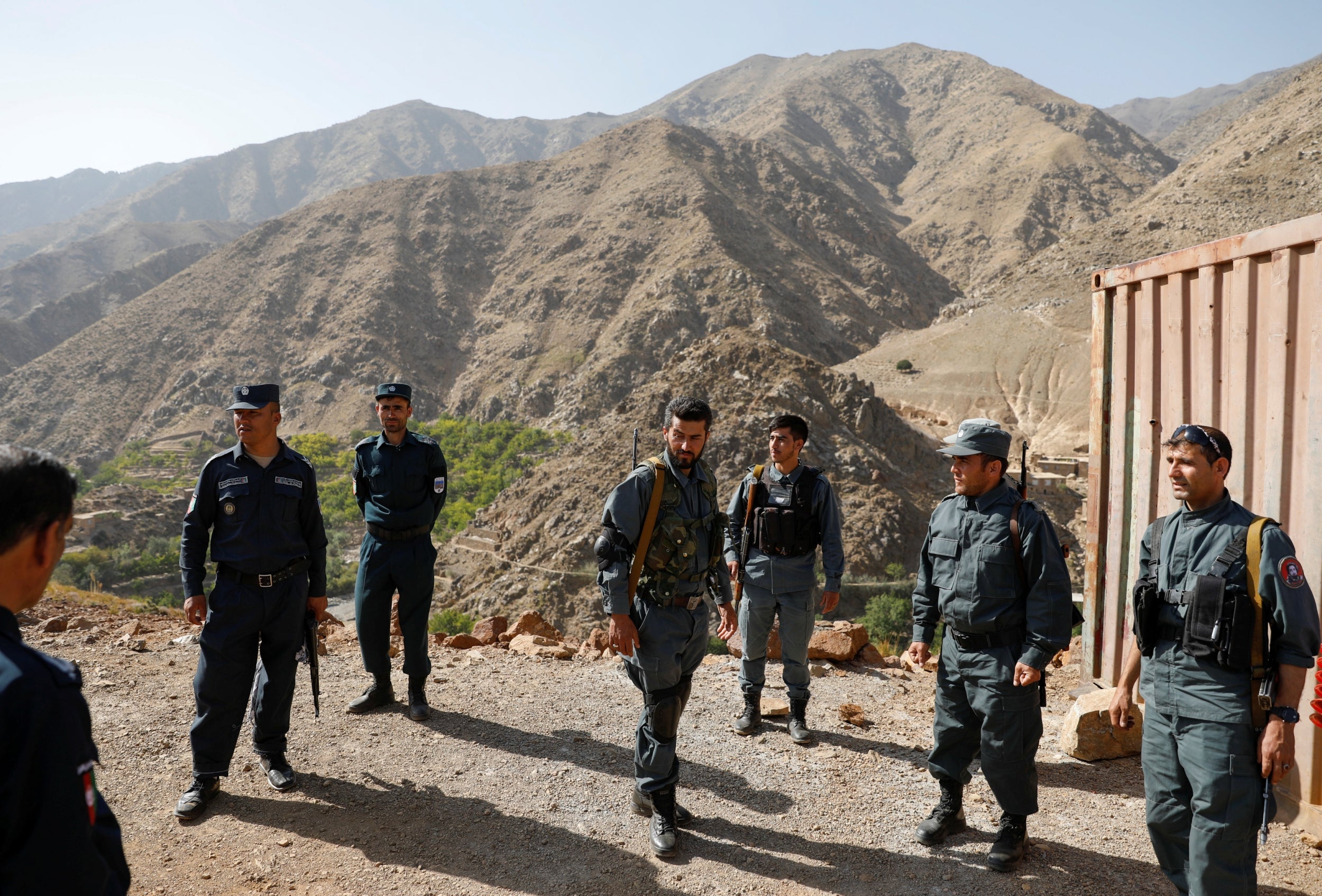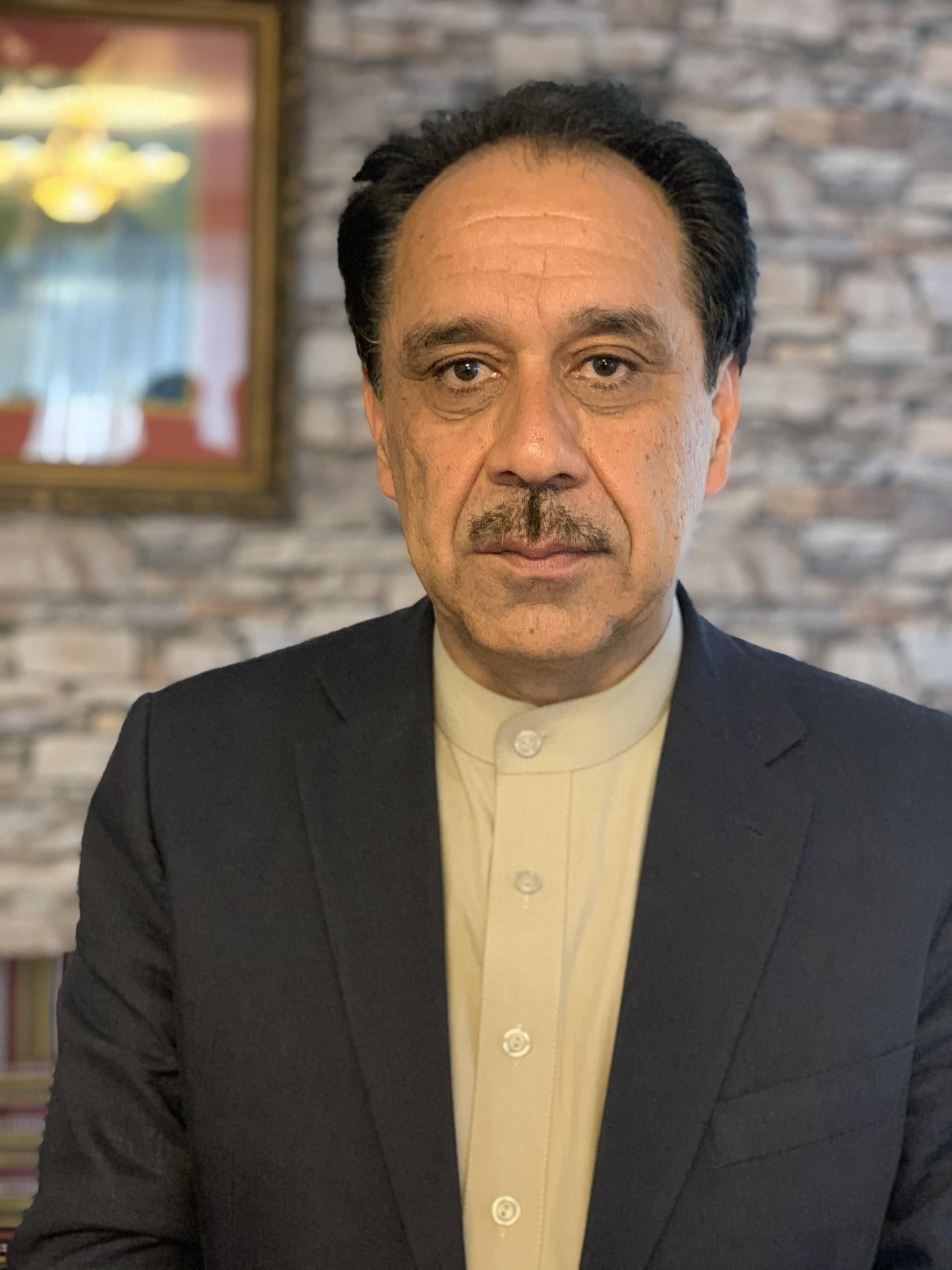As Afghanistan heads to polls, Middle East rivalries threaten already fraught political scene
Tensions between Saudi Arabia and Qatar inject yet another element into election campaign beset by violence, finds Kim Sengupta in Kabul


Your support helps us to tell the story
From reproductive rights to climate change to Big Tech, The Independent is on the ground when the story is developing. Whether it's investigating the financials of Elon Musk's pro-Trump PAC or producing our latest documentary, 'The A Word', which shines a light on the American women fighting for reproductive rights, we know how important it is to parse out the facts from the messaging.
At such a critical moment in US history, we need reporters on the ground. Your donation allows us to keep sending journalists to speak to both sides of the story.
The Independent is trusted by Americans across the entire political spectrum. And unlike many other quality news outlets, we choose not to lock Americans out of our reporting and analysis with paywalls. We believe quality journalism should be available to everyone, paid for by those who can afford it.
Your support makes all the difference.Bitter rivalries among the Gulf states are being secretly played out in Afghanistan’s impending election, with “hidden foreign hands” trying to manipulate the result, a leading candidate has claimed on the eve of the poll.
Saudi Arabia and the United Arab Emirates are seeking to ensure that Ashraf Ghani, the incumbent, wins the presidential race, given his opposition to Taliban peace talks being held in Qatar, Ahmad Wali Massoud told The Independent.
The brother of “The Lion of Panjshir” – commander Ahmad Shah Masood, who was assassinated by the Taliban – holds that the Afghan election has become a locus of competition between Qatar and its Saudi and Emirati adversaries.
“The Saudis and Emiratis don’t want Qatar to become the power behind the scenes and make themselves invaluable with the Americans – they want to play major roles in the peace process,” claimed Mr Massoud, a former ambassador to the UK.
The accusations of interference come as campaigning ends in an election which has become increasingly acrimonious, with allegations of fraud and warnings by some candidates that they will not accept the result of Saturday’s vote if there is evidence of malpractice.
The run-up to the polls has also been marked by relentless violence, with 170 people killed and 300 wounded in insurgent attacks since campaigning started. The Taliban issued another threat on Friday, warning people to “stay away from the polling stations on election day”.
A rally due to be held by Mr Ghani at Kabul’s Ghazni stadium, where the Taliban used to execute prisoners, was cancelled at the last minute “due to a credible and serious threat”, said officials.
Mr Massoud said that although the ongoing violence has been a matter of grave worry, there should also be serious concerns about accusations of dirty tricks.
Afghanistan, he maintained, has become embroiled in the now two-year-long confrontation between the Saudis and Emiratis, and the Qataris. “We have heard there are some foreign hands who are very keen to see Dr Ghani succeed and have been working towards it; this is not pleasant news to hear”, said Mr Massoud.
“We hear that the Saudis and the Emiratis here are getting involved. We have been told that a team of hackers had been brought in by Dr Ghani’s team.
“It is about the Taliban talks. The Saudis and the Emiratis feel they have been left behind despite all the money, the resources they have spent in Afghanistan helping the Taliban over the years. They want to take the peace initiative away from the Qataris if they can.”
Saudi and Emirati diplomats, as well as Mr Ghani’s team, strongly denied that there has been any collusion between them during the election campaign. And no evidence has been produced to support the claims. Daud Noorzai, chief campaign manager, has repeatedly stressed that the Ghani campaign has been transparent and has taken the utmost care to avoid being connected with impropriety.

The UAE and Saudi Arabia were the only states, apart from Pakistan, which recognised the Taliban regime of Mullah Mohammad Omar as the legitimate government of Afghanistan during its five years in power.
There are a large number of diplomats and officials from the kingdom, UAE and Qatar present in Kabul during the election campaign and all three states maintain a sizeable presence in the country.
Five Emirati diplomats were killed in a bombing in Kandahar in 2017 when inaugurating projects in the city: the ambassador, Juma Mohammed Abdullah al-Kaabi, later died from his injuries.
Donald Trump suspended the Doha talks in early September after a Taliban attack killed an American serviceman. But there is widespread expectation that they will resume, with the US president desperate to bring troops home and claim credit for ending the longest war in American history in time for his re-election bid next year.
The negotiations had been held between an American team led by Zalmay Khalilzad – an Afghan-American and a former ambassador to Afghanistan – and a Taliban delegation based in Qatar and augmented by senior officials from Pakistan.
There has been strong criticism of the talks from various quarters. The Afghan government was excluded from them, and Khalilzad was accused of giving away too much in a draft agreement to the Talibs, without getting anything much in return.
President Ghani was a vocal critic of the draft agreement. Other international politicians and officials had also cautioned against the projected deal, including senior figures in the US Congress such as Republican Lindsay Graham.
“Perhaps some of the lobbying firms working for Dr Ghani in the US were one reason why Mr Khalilzad failed to deliver, we don’t know who was behind hiring these lobbyists,” said Mr Massoud.
In January the Taliban complained about a scheduled meeting in Riyadh with the Americans, claiming that the Saudis would use the opportunity to push them to talk to the Afghan government and also water down their negotiating position.
A Taliban leader told Reuters at the time that “differences between Saudi Arabia and Qatar have in fact damaged our peace process. The Saudis unnecessarily put pressure on us to announce a ceasefire which even the US delegation didn’t pursue.”
Shortly after the UAE and Saudi Arabia severed relations with Qatar in June 2017, leaked emails between Emirati and US diplomats revealed that the UAE was vying to be the venue for the Taliban talks in 2011, at the same time the group was setting up office in Doha.
Another leaked email in January 2018 from Yousef Al Otaiba, the UAE ambassador to Washington, expressed the “anger” of Emirati foreign minister Abdullah bin Zayed (ABZ) over the fact that Qatar had taken such a prominent role in the Taliban negotiations.
Mr Massoud also claimed that there were reports that President Ghani’s team will claim victory on Sunday and declare himself winner of the election. “The other candidates would not accept this if it happens. We shall form a council to oppose it. We feel there will be fraud in this election, it is a very dangerous situation,” he said.
Abdullah Abdullah, co-leader with Mr Ghani in the outgoing administration, and his main rival in the election, also maintained there is likely to be widespread voter fraud.
“We have registered quite a few complaints, but this is just the tip of the iceberg”, he said. “My main concern will be that massively fraudulent elections will have an impact on the mentality of the people on whether the democratic process has been functioning or not. If there is massive fraud, and somebody is announced as a winner, this will not be accepted.”
President Ghani said that he was not willing to go into another power-sharing arrangement if there was no overall majority. “Afghanistan must have one president, not two. I will not accept another national unity government. God willing I expect to win the election during the first round, I believe and trust the decision is in the hands of the Afghan people,” he stated ahead of Saturday’s vote.
Mr Ghani wanted to stress: “My opponents can only challenge the election results in a court of law, not in a personal way. Our security and defence institutions are completely neutral and they are the guardians of the law. We don’t have the same dangers and threats that we have had in previous elections.”
More than 100,000 security personnel will be deployed across the country for the election, with US-led international forces providing air support. Around 29,500 polling stations have been set up in schools, mosques, hospitals and government building. But nearly 1,500 polling stations would remain closed because adequate protection could not be guaranteed.
Read the first part of the Conflict Without End series here: Afghanistan election marred by bloodshed and corruption; the second part here: Afghanistan families torn apart by deadly carnage: ‘My grandson will have to see more dead bodies when he grows up’; the third part here: Raid on al-Qaeda bomb factory leaves dozens of wedding-goers dead, in latest Afghan violence and the fourth part here On the Afghan campaign trail in the shadow of the destroyed Buddhas of Bamiyan, talk of Taliban return divides
Join our commenting forum
Join thought-provoking conversations, follow other Independent readers and see their replies
Comments